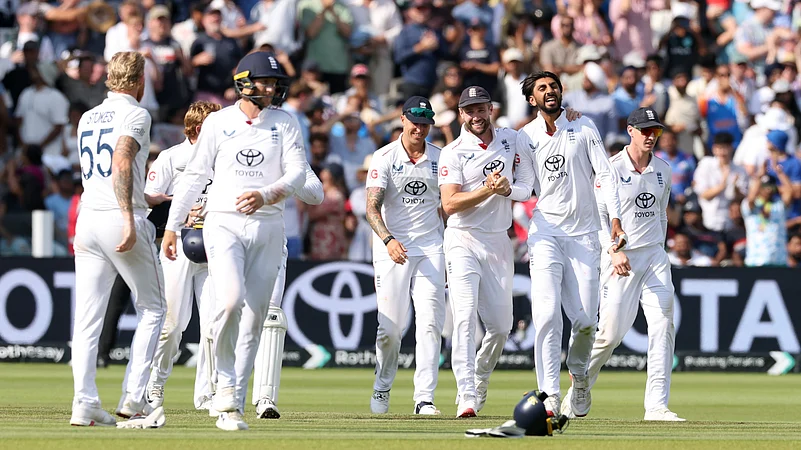The International Cricket Council (ICC) introduced a new stop clock rule in Test cricket, effective from the 2025-27 World Test Championship (WTC) cycle. Fielding sides must start each over within 60 seconds. An electronic clock displays the countdown, aiming to curb persistent slow over-rates. England faced a significant penalty for a slow over-rate at Lord's under prior regulations, highlighting the rule's importance.
New Stop Clock Rule Details
The new stop clock rule directly addresses the persistent issue of slow over-rates. Fielding sides must prepare to bowl the next over within 60 seconds. A digital clock displays this time, counting from zero to 60 seconds.
Teams receive two warnings for delays. After a third infraction, the batting side receives five penalty runs. Warnings reset after 80 overs. This policy promotes efficient match progression and discourages time-wasting.
Rule Enforcement and Impact
The stop clock rule debuted in the Sri Lanka vs Bangladesh Test in Galle, marking the first match of the 2025-27 WTC cycle. This change followed a successful trial period in white-ball formats, where similar penalties improved match tempo.
The clock's visible presence and the threat of a five-run penalty have encouraged quicker play. Commentators note reduced downtime, indicating teams quickly adapt to the new timings.
Players and officials acknowledged the need for action due to dwindling spectator engagement. The stop clock prompted tactical adjustments from captains and coaches. This rule will define Test match strategy.
The ICC reaffirmed its commitment to "keep matches more engaging," highlighting that timely play is essential for sustaining Test cricket's appeal to contemporary audiences. The ICC formally announced the rule in June 2025, enforcing it in late June 2025 during the Sri Lanka versus Bangladesh WTC Test.
England's Lord's Test Penalty
England were penalized for a slow over-rate during the Lord's Test against India, incurring fines and championship point deductions. They were sanctioned under Article 16.11.2 of the ICC WTC playing conditions for their slow over-rate during the third Test, which concluded on July 14, 2025.
The team finished two overs short after allowing for time allowances, resulting in a deduction of two WTC points – one for each over short – and a 10% fine of the match fee for all players. This penalty reduced England's WTC points tally from 24 to 22 out of 36, dropping their points percentage from 66.67% to 61.11%.
Consequently, England fell from second to third place in the standings. England captain Ben Stokes accepted the sanction, and a formal hearing was not required. On-field umpires, along with the third and fourth umpires, brought the charge.
India were not sanctioned for slow over-rates in this match. Point deductions previously affected teams' WTC final qualification, underscoring the severity of such penalties.















